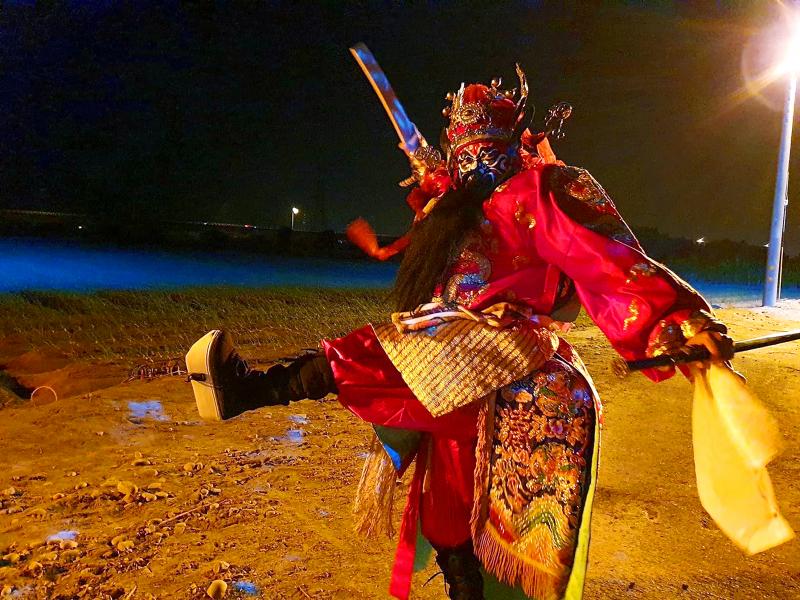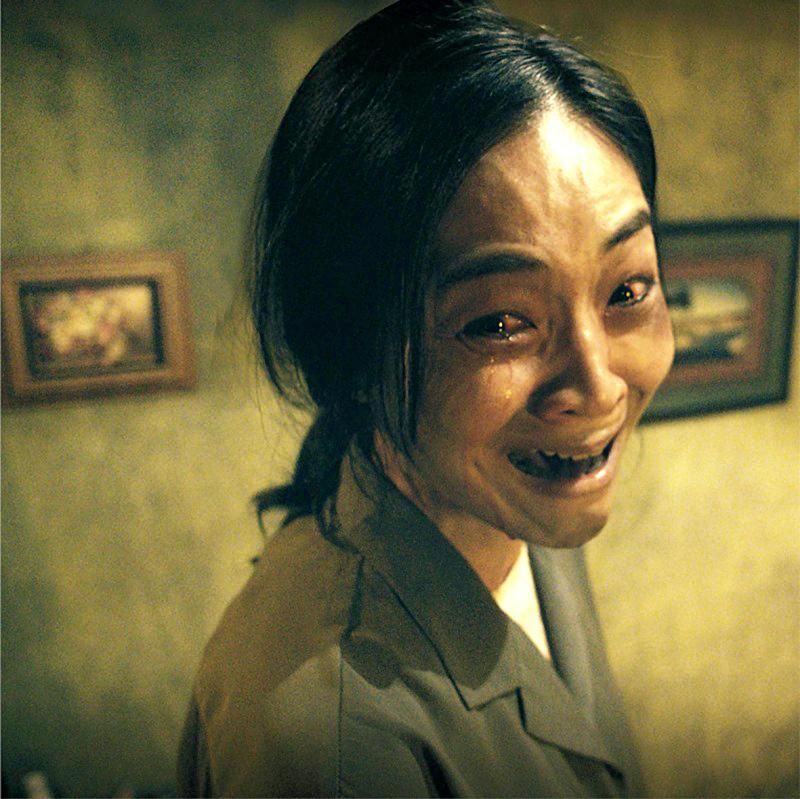Fittingly released at the high point of Ghost Month on Zhongyuan Festival (中元), The Rope Curse 2 (粽邪) rides the wave of local blockbusters based on Taiwanese religious and folk customs, loosely continuing the events of the first installment.
It seems to be a formula that works, as the film grossed NT$26 million in the first week, holding its ground against the triple-headed Hollywood onslaught of Mulan, The New Mutants and Tenet.
Both Rope Curse films deal with the song rou zong ritual (送肉粽, sending rice dumplings) prevalent in coastal Changhua, where Taoist priests purify the soul of someone who hanged themselves. Locals believe that if the ritual is not conducted, the deceased will remain in the human world searching for someone to take their place so they can be reincarnated.

Photo courtesy of Wowing Entertainment
Perhaps due to the success of the first film, this ritual has actually gained popularity in recent years and has spread to other areas of Taiwan. Residents are not happy about this because they feel that the ritual, which had never been a folk tradition where they live, brings them bad luck.
This reviewer did not watch the first Rope Curse, and while there are guest appearances in part two that tie in to the first part and foreshadow a third film, it’s not too hard to figure out what’s going on if one has some knowledge of how Taiwanese religious and supernatural beliefs and practices work.
But since this is the second installment, those who don’t know much should do their research or watch part one beforehand, otherwise the plot will be quite difficult to process since it jumps straight into the action.

Photo courtesy of Wowing Entertainment
Rope Curse focuses on the Zhong Kui dance (跳鍾馗) portion of the ritual, where a Taoist priest assumes the spirit of Zhong, a deity who is known for his abilities to vanquish evil spirits and ghosts.
Other supernatural beliefs are added into the mix, including yizi gu (椅子姑, chair maiden) divination practice through summoning the spirit of a murdered young girl as well as a spine-chilling dose of Thai black magic.
Lee Kang-sheng (李康生) plays Huo-ge, a troubled man blessed (or cursed) with the ability to see supernatural beings. Huo-ge’s spirit is broken after inadvertently killing his master, who taught him how to perform exorcisms. He begrudgingly agrees to play the part of Zhong Kui during a song rou zong ritual to save a village from a Thai spirit that is causing villagers to hang themselves.
Lee’s trademark laconic, somewhat awkward delivery still takes some getting used to, but it fits his character here as an unwilling but passionate hero.
It is interesting to see how modern and traditional beliefs clash in this film, as people who don’t take these phenomena or Huo-ge’s advice seriously repeatedly interrupt the various processes, exacerbating the situation until the inevitable final showdown. For example, in the opening scene, Grey Bear (Sun An-tso, 孫安佐) summons a chair maiden just for his livestreaming channel and proceeds to agitate it by asking a rude question, almost leading to disaster before Huo-ge steps in. These beings are powerful, but human recklessness is what drives the events forward.
Also at the center of the film is Jia-min (Wilson Hsu, 許安植), a young woman who has the same spiritual constitution as Huo-ge and is plagued by her visions. She also suffers from physical abuse at the hands of her uncle, who raised her after she lost her parents but blames her for bringing him bad luck. The most memorable performance, however, is by Vera Chen (陳雪甄), who plays Jia-min’s tortured aunt who becomes possessed by the evil Thai spirit. Even though she is regularly beaten by her husband, the conflicted emotions she displays after he is killed is poignant and heartbreaking, and right after that she turns into a raging, contorted demon.
Overall, The Rope Curse 2 provides solid entertainment that’s highly relevant to both modern and traditional Taiwanese themes and how they may clash. It definitely could be scarier, as the plot focuses more on the human element in both Huo-ge and Jia-min’s struggles to come to terms with their abilities (“there is only a thin line between a blessing and a curse”) — almost like a superhero movie in that sense.
The script could also be tighter and streamlined for a more intense experience, but it’s clear that director Liao Shih-han (廖士涵) put a lot of thought into it as most of it made sense and did not bore. The various supernatural folklore are not just gimmicks to tell a superficial horror story designed just to frighten, and it speaks to the audience on several levels beyond what’s presented. That puts it above your standard ghost tale.

One of the biggest sore spots in Taiwan’s historical friendship with the US came in 1979 when US president Jimmy Carter broke off formal diplomatic relations with Taiwan’s Republic of China (ROC) government so that the US could establish relations with the People’s Republic of China (PRC). Taiwan’s derecognition came purely at China’s insistence, and the US took the deal. Retired American diplomat John Tkacik, who for almost decade surrounding that schism, from 1974 to 1982, worked in embassies in Taipei and Beijing and at the Taiwan Desk in Washington DC, recently argued in the Taipei Times that “President Carter’s derecognition

This year will go down in the history books. Taiwan faces enormous turmoil and uncertainty in the coming months. Which political parties are in a good position to handle big changes? All of the main parties are beset with challenges. Taking stock, this column examined the Taiwan People’s Party (TPP) (“Huang Kuo-chang’s choking the life out of the TPP,” May 28, page 12), the Democratic Progressive Party (DPP) (“Challenges amid choppy waters for the DPP,” June 14, page 12) and the Chinese Nationalist Party (KMT) (“KMT struggles to seize opportunities as ‘interesting times’ loom,” June 20, page 11). Times like these can

Dr. Y. Tony Yang, Associate Dean of Health Policy and Population Science at George Washington University, argued last week in a piece for the Taipei Times about former president Ma Ying-jeou (馬英九) leading a student delegation to the People’s Republic of China (PRC) that, “The real question is not whether Ma’s visit helps or hurts Taiwan — it is why Taiwan lacks a sophisticated, multi-track approach to one of the most complex geopolitical relationships in the world” (“Ma’s Visit, DPP’s Blind Spot,” June 18, page 8). Yang contends that the Democratic Progressive Party (DPP) has a blind spot: “By treating any

You can tell a lot about a generation from the contents of their cool box: nowadays the barbecue ice bucket is likely to be filled with hard seltzers, non-alcoholic beers and fluorescent BuzzBallz — a particular favorite among Gen Z. Two decades ago, it was WKD, Bacardi Breezers and the odd Smirnoff Ice bobbing in a puddle of melted ice. And while nostalgia may have brought back some alcopops, the new wave of ready-to-drink (RTD) options look and taste noticeably different. It is not just the drinks that have changed, but drinking habits too, driven in part by more health-conscious consumers and